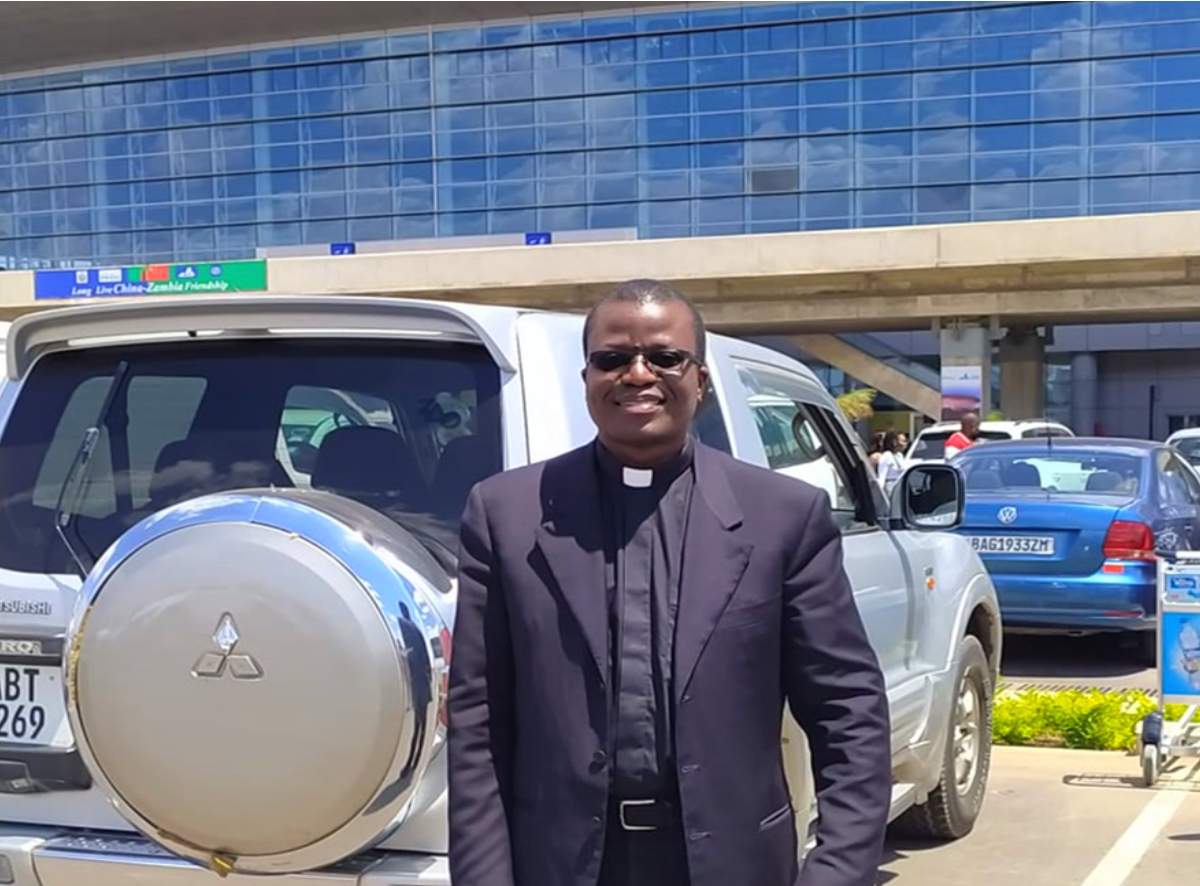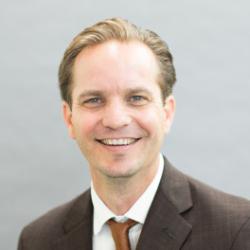For over 20 years, the Acton Institute’s Rome office has enjoyed a number of extremely impressive academic fellows as part of its prestigious scholarship programs offered to graduate students at pontifical universities. Aiding in the study of theology, moral philosophy, law, and social sciences, Acton’s grants and awards program is paying huge dividends. Its alumni are now serving in highly leveraged positions across all continents as diocesan pastors, international missionaries, development economists, university and seminary professors, and episcopal advisers. This interview highlights the whereabouts and continued journeys of just one such Acton Rome Fellow.
The Rev. Dr. Nicholas Chisongo has been a priest for 14 years and is now a newly minted Ph.D. from the prestigious Pontifical University of the Holy Cross. He recently returned to his homeland of Zambia after spending several years researching the difficult crosshairs of canon law and financial stewardship within the Catholic Church.
Fr. Chisongo is now set to teach at St. Dominic’s National Seminary, Zambia’s largest, in Lusaka, the capital city. He arrived in Lusaka despite the difficult conditions imposed by a re-emerging pandemic in Africa and greatly underserved human and financial resources. He took time out of his busy schedule to respond to questions related to both his research and his vision for educating seminarians and the church’s leaders according to the canons of church law and sound finance.
Severance: You recently defended a brilliant and most unique doctorate. It was based on canon law but tightly focused on the justice of diocesan financial management. The title of your highly praised thesis was “The Relationship between the Diocesan Bishop and the Finance Officer in the Administration of Temporal Goods.” Can you tell us a little about it? What was your main argument from an economic and moral standpoint?
Chisongo: My doctoral thesis discusses the connection between the role of a bishop (as the one entrusted with the governance of a diocese) and that of the diocesan finance officer in the management of church assets. My main argument, from a governance perspective, is that a bishop is the administrator of the church’s diocesan assets, but he is obliged by canon law to appoint an administrator to serve as his chief financial officer (cf. can. 494, 1). Both economically and morally speaking, I would say that just as a CEO does not directly handle the finances of his company (to ensure transparency and efficiency and to avoid conflicts of interests), likewise, a bishop must delegate the daily management of the church’s important assets to a CFO of his choosing.
Severance: Why did you decide to research this subject matter? Are there particular issues in Zambia, your homeland, related to your thesis?
Chisongo: I chose this topic after reflecting on my experiences as a young priest who did not understand the clear roles that exist between bishops and their finance officers—treasurer generals as they are commonly called in Zambia. From shared concerns and discussions with other Zambian clerics, I became convinced that researching this topic would be appropriate and hopefully helpful, not only to the Zambian church but to our ecclesial institutions worldwide.
Severance: Back to the praxis of your research….What sort of investments and holdings does a Zambian diocese typically have? How are they important to managing costs and paying for human resources?
Chisongo: Farming and livestock (sheep, cattle, goats) are the most common investments made by a Zambian diocese. There are also some dioceses that have ventured into construction, the hospitality industry, and even owning housing and leasing units. These latter investments are extremely important in that they help pay for diocesan personnel and cushion the blow of various high management costs.
Severance: Are there any particular financial management models that are both ethical and efficient that are good for the church?
Chisongo: We have to bear in mind that financial management consists of planning, directing, as well as controlling the financial activities of any organization. The church is not exempt from making a financial plan as well as controlling its own financial activities. The church obliges every diocese to have in place a financial council tasked with preparing annual budgets. At the close of each year, a detailed report is to be presented by the diocese’s chief finance officer to the board of governors. This allows for accountability on the part of a bishop. This, in turn, creates confidence and trust in the ways that our finances are being utilized.
Severance: Do you have any particular opinion on how the Vatican might improve financial management and transparency at its own Secretariat for the Economy?
Chisongo: My take on this is that there is great need to ameliorate controls on financial management at that level. With efficient and solid control measures, we can be sure of transparency and accountability.
Severance: What are you plans for the immediate future? I hear you just accepted a position to teach at seminary?
Chisongo: As of January 1, I am expected to report to the Major National Seminary, St. Dominic’s, in the capital of Lusaka, where I have just been appointed the chair of canon law. I am hopeful that, in addition to classroom instruction, the seminary experience will offer a conducive environment to deepen my knowledge while contributing scholarly writings on various topics related to canon law and finance.
Severance: Will the seminarians be taught some financial management and related canonical principles in your courses?
Chisongo: Yes. They will be instructed on financial organization as well as on canonical teachings related to financial management. Hopefully, this will enable them to be sound financial administrators.
Severance: Who among your bishops in Zambia or throughout Africa is really bringing about great change for church finance, and why?
Chisongo: I really can’t say which particular African bishop is bringing about great change to church finance. Nonetheless, my new bishop in the Diocese of Mpika, Edwin Mulandu, has put into effect some critical control measures to ensure more transparency and accountability in terms of church financial stewardship. Being an accountant himself, he is also applying financial management techniques in order to improve efficiency!
Severance: You, of course, were a most faithful participant in Acton’s Rome seminars. How did they impact your research focus?
Chisongo: I attended a number of Acton Campus Martius seminars, private symposiums, and public international conferences while in Rome. It was always a mind-opening experience. I gained a lot of insights, especially in terms of building the foundations of freedom. This is because a free society must develop and prosper both in terms of the quantityand quality of our economic and religious freedoms. It is a both/and, not either/or. There is a natural connubial relation between the two, as they continually reinforce one another.
Severance: You also received the prestigious “all-expenses-paid” Rome Kennedy Fellowship, spending a week attending Acton University in Grand Rapids in 2019. This was the last in-person edition (1,100 attendees from 80+ countries) before the pandemic border closures and international travel restrictions in 2020 and 2021. Which was your most memorable AU lecture? Did it help your global perspective in terms of faith, morals, and markets? Would you attend again?
Chisongo: I was so delighted to receive a full fellowship to attend Acton University in Grand Rapids in 2019, flying in from Rome. I learned a lot from the “Community and Economic Development” seminar led by Justin Beene. The most memorable AU lecture was “Income and Inequality” by Stephen Barrows. It was an absolute eye-opener for me, as it helped me to have a better worldview on matters of freedom, faith, and economics, in that we are equal in our God-given dignity, in terms of our talents, our economic and creative “income” potential. Yet we can accept a different “outcome,” economically speaking, in the ways our unique vocations are particularly manifested in differently remunerated trades and services, which are all valid and equal in terms of serving our God and neighbor. I really look forward to attending the next AU conference.

